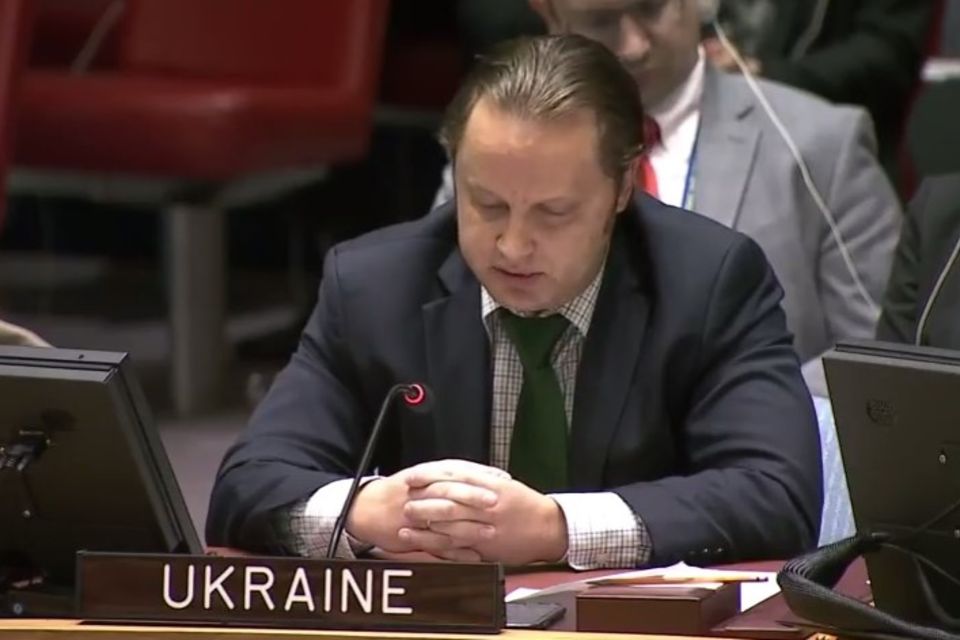Виступ делегації України на засіданні РБ ООН щодо медичної допомоги в збройних конфліктах

· During our meeting in May, when resolution 2286 was adopted, you Madam Liu said: «We should make this resolution save lives». We cannot agree more.
· Yet, in September we must admit that this goal is still out of reach.
· Tragically, Syria is the worst example of attacks against medical facilities. According to the World Health Organization, almost every day, hospitals, clinics and ambulances are being targeted in this country. Before yesterday, in September there were two especially hideous attacks against medical facilities in Syria: one on the humanitarian convoy on 19 September and another one on the medical mobile unit in opposition controlled area north Aleppo the very next day. This morning we learned of yet another bombing of two hospitals that provide badly needed services to people in Eastern Aleppo. Frankly we are out of words. We joint the call of other delegations around this table on Syrian regime and its Russian ally to stop these barbaric aсts.
· In Yemen, medical facilities also become a frequent target of the airstrikes.
· Unfortunately, the situation is not much different in Afghanistan where only during last three months there were eight attacks against health facilities.
· It is against this appalling background that we should urgently consider how to make 2286 work.
· In this regard we took note of the SG recommendation to enhance protection of medical and humanitarian personnel.
· We would like to emphasize that international humanitarian and human rights law has sufficient provisions providing legal protection to medical and humanitarian personnel and facilities. However, quite often they are not respected and are violated by the parties to armed conflicts.
· In this light among the SG recommendations we would like to underline the following:
First. Enhancing the documentation of acts of violence against medical care in armed conflict.
Collection and public recording of data on attacks on health services is a key element to develop an effective preventive system. Thus we would like to echo SG recommendation to Member States to enhance their support to UN monitoring and data collecting efforts.
Second. Ensuring independent and effective investigations into serious violations of international law against medical care in armed conflict.
In this regard, we deem it necessary to have Security Council briefings on country situations, where medical care is under attack. Such briefings should, in our view, include information on investigative steps that relevant Member States have taken. In addition, the recommendation to the Security Council on possible establishment of international fact-finding missions or commissions of inquiry deserves our most careful consideration.
Third. Ensuring accountability for acts of violence against medical care in armed conflict.
It is of utmost importance that those responsible for such war crimes are held accountable. We share the view that, where domestic accountability mechanism are insufficient, Member States should cooperate fully with existing international criminal justice institutions, including the International Criminal Court, to combat impunity and to ensure respect for international humanitarian law.
Thank you.
